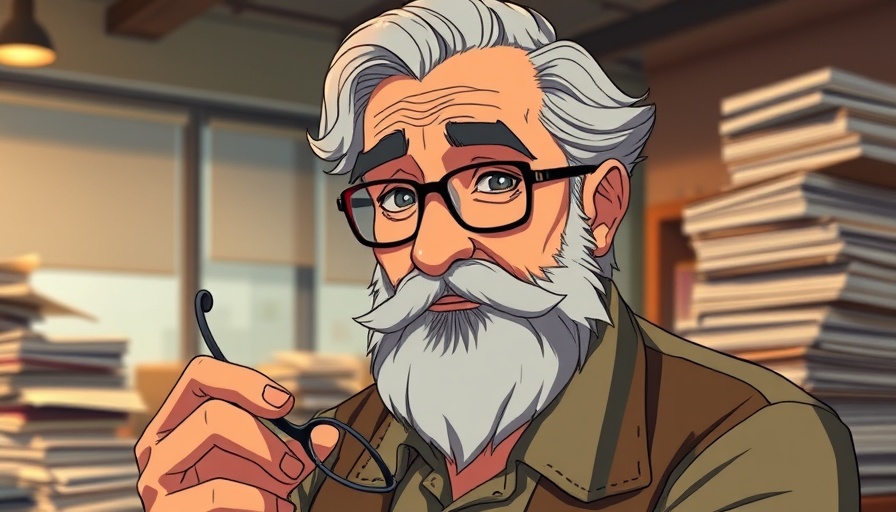
Legal Waters: Studio Ghibli vs. OpenAI
The rapid rise of generative AI technologies like OpenAI's ChatGPT is stirring the pot in the realm of copyright law, particularly with its shift towards generating images reminiscent of beloved anime styles. A recent controversy surrounding the studio Ghibli has triggered fresh conversations about artistic ownership and the ethical implications of AI in creative fields.
Understanding Copyright in the Age of AI
With OpenAI's ChatGPT enabling users to create artwork in the 'Ghibli style,' the line between homage and copyright infringement seems to blur. Legal expert Rob Rosenberg suggests that Studio Ghibli could potentially sue OpenAI if they can prove that the latter is profiting from their trademarked style, thus undermining their brand. According to the Lanham Act—a law designed to protect trademarks—Ghibli might have grounds to argue that OpenAI’s actions lead consumers to falsely believe that their work is endorsed or licensed by the studio.
The Response from Studio Ghibli
The recent developments caught the attention of Ghibli, who issued a statement declaring a viral cease and desist letter as fake. This raises questions about how seriously the studio is considering legal recourse against AI-generated content. As creators confront the implications of AI, their responses could set significant precedents for copyright cases going forward.
What's Next for AI and Copyright?
As OpenAI grapples with its own legal woes regarding copyright claims—like the ongoing lawsuit from the New York Times—the future remains uncertain. If Ghibli or other studios begin to take a stand, it could lead to landmark changes in how AI companies operate. A revolution in copyright law may be on the horizon, one where traditional notions of ownership are redefined by the capabilities of artificial intelligence.
Implications for Artists and Creators
For artists, this situation exemplifies the growing need for clarity in the legal frameworks surrounding AI. As tools continue to democratize the creative process, safeguarding artistic integrity and originality becomes paramount. The outcomes of these cases may inspire new guidelines that uphold the rights of artists while embracing innovation.
In conclusion, as the conversation around AI and copyright evolves, it's crucial for both consumers and creators to stay informed about how these developments may affect the future of creativity.
 Add Row
Add Row  Add
Add 
 Add Element
Add Element 

Write A Comment